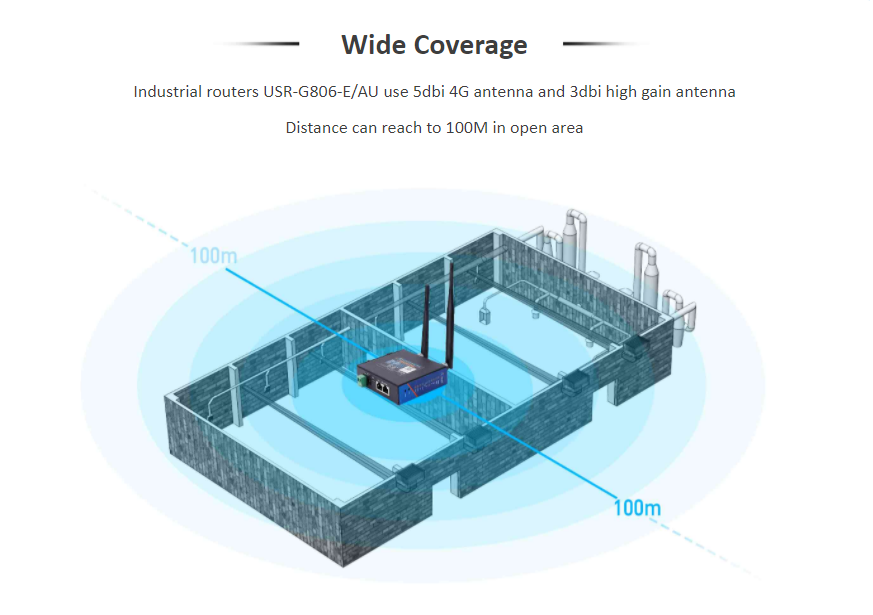10 million pcs daily
Intelligent MES
Differences between Industrial Routers and Household Routers
As a type of IoT wireless communication routers, industrial routers provide users with the function of wireless long-distance data transmission function by using wireless networks of public operators. They have been widely applied to various field of M2M throughout the IoT technology industry chain, such as smart energy, intelligent traffic, smart home systems, financial services, mobile POS terminals, supply chain management automation, industrial control automation, intelligent buildings, fire safety, public security, ecological environmental protection, meteorology, digital health, remote sensing technology for a survey, agriculture and animal husbandry, forestry, water affairs, coal mining, and petrochemical engineering.
Then, what are the differences between industrial routers and household routers?
1. Different product stability
Common household routers are hardly as highly stable as industrial ones. Industrial routers can normally run both long and continuously, and can automatically repair their faulty network, whereas common household routers can not. In harsh weather conditions, in particular, common household routers are highly likely to meet network failure if they work long without interruption of power supply. Generally, if they run for some time, they must be powered off or manually restarted, otherwise, a failure easily occurs.
2. Different working temperature
For industrial routers, their requirements for operating temperature are equivalent to those for electronic components. Generally, the working temperature of industrial routers ranges from -20oC to 70oC, while that of common household routers ranges from 0oC to 40oC. Therefore, household routers fail to be used in harsh industrial environments. The working temperature range is determined by the electronic components of the devices, including core chips.
3. Different product functions
To be applied to the industry, industrial wireless routers must support stronger functions and performance than household routers do. Industrial wireless routers must have large bandwidth and fast response, and support port mapping, VPN, watchdog, more powerful firewall functions, advanced electrostatic discharge protection, and other functions. According to the above description, if an enterprise selects a household router to save budget, the router may cause many problems, such as Trojan, intrusion of a hack, intermittent network connection, and even disappearance of network signals, and failure to work longer due to excessive heating.
Therefore, besides price, the two types of routers still show a great gap.


